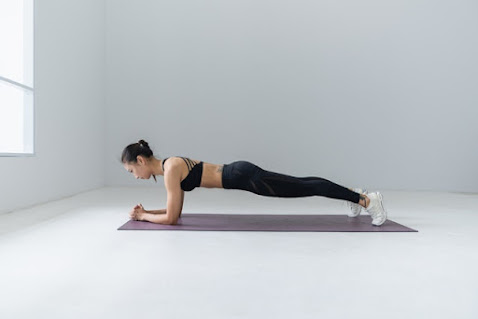That's bad news, but
the new data shows that there are plenty of good reasons to keep moving at any
age, even when you're sick or pregnant. Indeed, scientists are realizing that
exercise is actually medicine. Claude Bouchard, director of the Human Genomics
Laboratory at the Pennington Center for Biomedical Research in Louisiana, says
there are no drugs to take nearby. And if it does, it will be very expensive.
1.Exercise is good for the brain.
This is because they
have less depression, good memory, and learn faster. Research shows that
exercise today is the best way to prevent or delay the onset of Alzheimer's,
which is a huge problem for many Americans.
Scientists don't know
exactly why movement changes the structure and function of the brain, but it's
an active area of research. So far, they
have found that exercise improves blood flow to the brain by promoting the
growth of new blood vessels and even new brain cells via the brain-derived
protein called neurotic factor (BDNF). BDNF triggers the growth of new
neurons and repairs and protects brain cells from degeneration. Recent research
shows that it can help people focus.
2.You can be happier.
Many studies have shown
that different types of exercise, such as walking and cycling, can improve mood
and relieve symptoms of depression. Exercise releases chemicals (serotonin,
norepinephrine, endorphins, and dopamine) into the brain to relieve pain, ease
mood, and relieve stress. "Over the years we've focused almost entirely on
the physical benefits of exercise and really ignored the psychological and emotional
benefits of exercise," said Cedric Bryant, director of research for the
American Athletic Commission.
3.It can slow down aging.
Exercise has been shown
to increase life expectancy by up to 5 years. A new small study shows that
moderate exercise can slow down cell aging. With increasing age, humans and
cells divide several times and shorten the telomeres (the protective cap at the
end of a chromosome). To see how exercise affects telomeres, the researchers
took muscle biopsies and blood samples from 10 healthy people before and after
a 45-minute stationary bike ride. They found that exercise increased the level
of telomere protection molecules and ultimately decreased the rate of
contraction over time. Exercise seems to slow down aging on a cellular level.
4.This will make your skin look better.
Aerobic exercise
accelerates blood flow to the skin and provides oxygen and nutrients that
improve skin health and speed wound healing. When people are injured, they need
to move as quickly as possible to not only protect the muscles from atrophy,
but also to keep blood flowing to the skin properly, says Anthony Hackney, a
university physiologist. Chapel Hill, North Carolina. A sufficient amount of
exercise increases blood vessels and skin capillaries.
The skin also acts as a heat release point.
(See Why do my faces blush during exercise?) During exercise, your muscles
produce a lot of heat that you need to radiate into your surroundings so your
body temperature doesn't get too high. This is Hackney. The heat from the
muscles is transferred to the blood and skin. Then you can escape into the
atmosphere.
5.Amazing things can happen in minutes.
New research shows that achieving positive
results doesn't require a lot of exercise. We wondered how deep you could go
Martin Gibala, a physiologist at McMaster University in Ontario. He wanted to
test the effectiveness of 10 minutes of exercise and a typical 50-minute fight.
The micro training he developed consists of three intense 20-second periods of
the most intense training and a short recovery time. In a three-month study, he
compared short-term training and conventional training to see which was better.
Surprisingly, this exercise also improved heart function and blood sugar
control, but one exercise was five times longer than the other. When you're
ready to put a lot of pressure, you can.
6.This can help you recover from a serious
illness.
Even very strenuous exercises like the interval
training that Gibala studied can be suitable for people with a variety of
chronic diseases from type 2 diabetes to heart failure. This is a new way of
thinking as people with certain diseases have been instructed not to practice
for decades. Researchers now know that more people can and should exercise. A
recent analysis of more than 300 clinical studies shows that exercise can help
you recover more effectively after a stroke after rehabilitation.
Dr. Robert Sallies, a general practitioner at
Kaiser Permanent Fontana Medical Center in California, has been prescribing
exercise for patients since the early 1990s to help distribute less medication.
"It worked well, especially for very sick patients," he says. If he
can do this on a regular basis - anything that increases his heart rate a
little, even just walking - his chronic illness will see significant
improvements, not to mention everything else like depression, anxiety, mood,
and energy.
7.There are fewer fat cells.
However, after regular aerobic exercise, your
body needs a lot of oxygen in order to burn fat better and convert it into
energy. One of the benefits of exercise is that our cardiovascular system is
stronger and provides better oxygen so we can metabolize more fat for energy.
As a result, fat cells that produce substances that cause chronic moderate
inflammation, such as inflammation, become compressed.





Comments